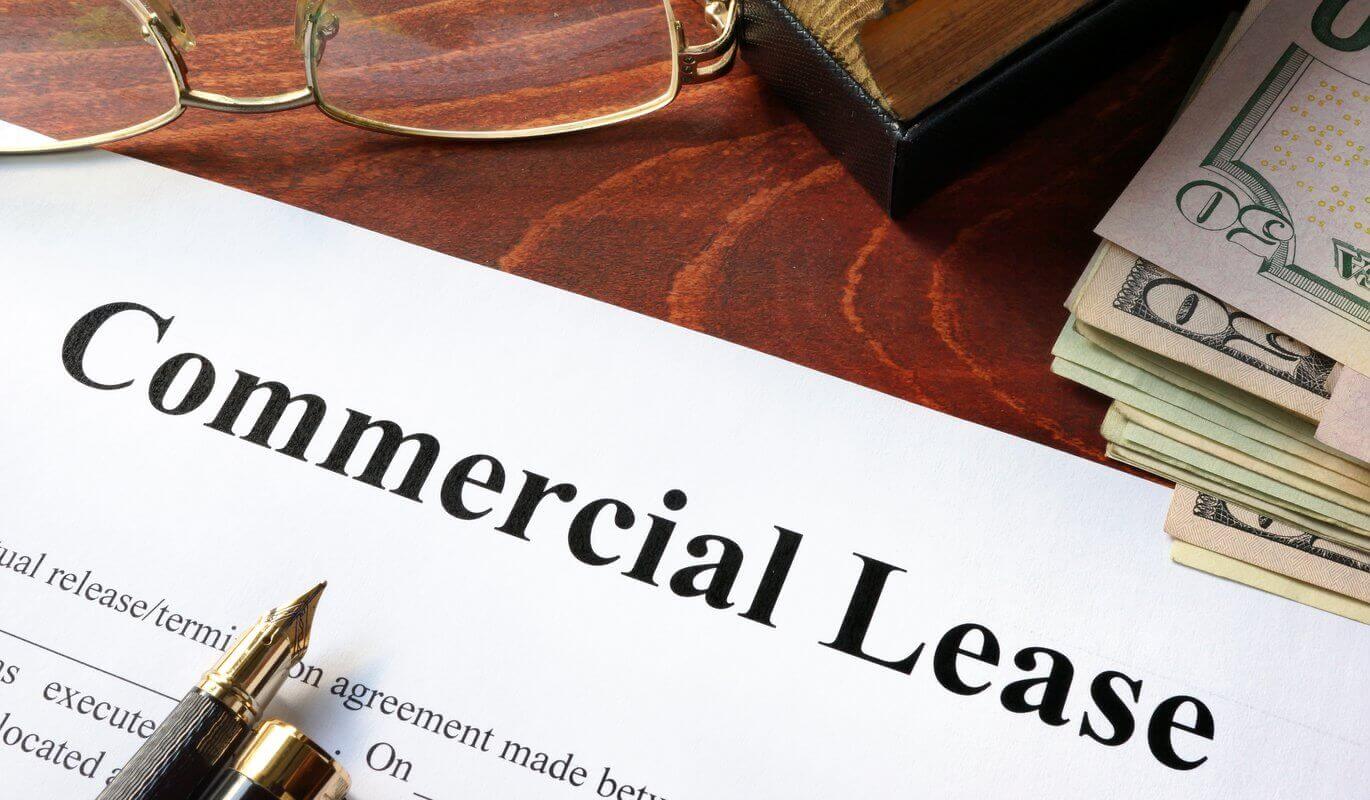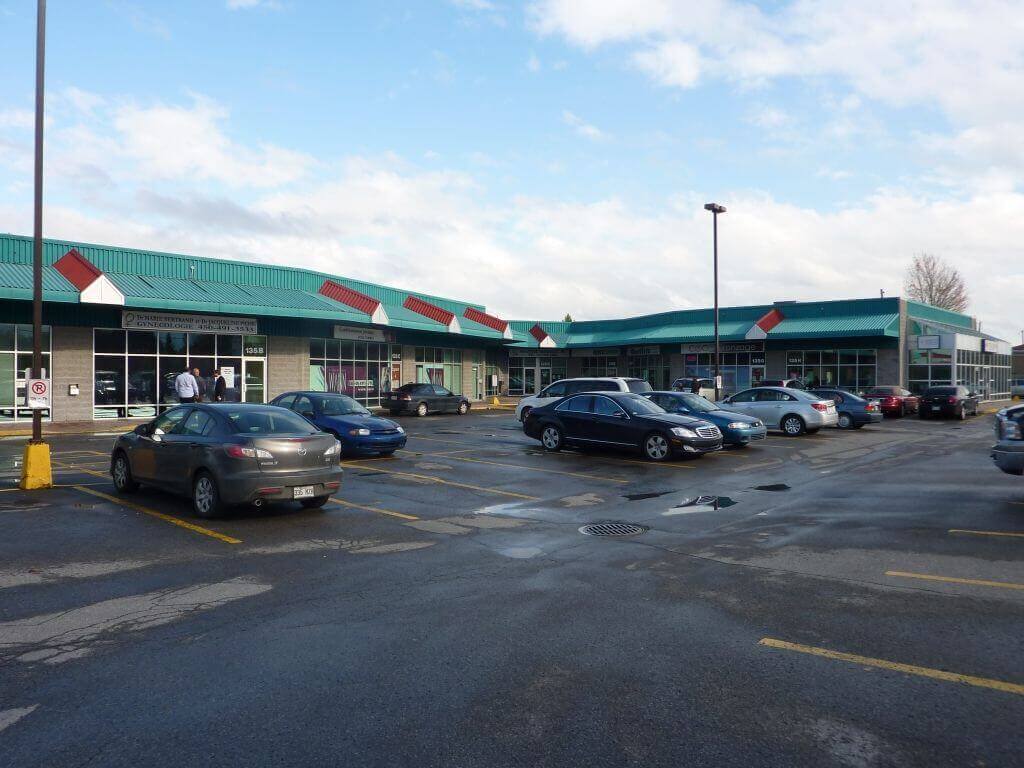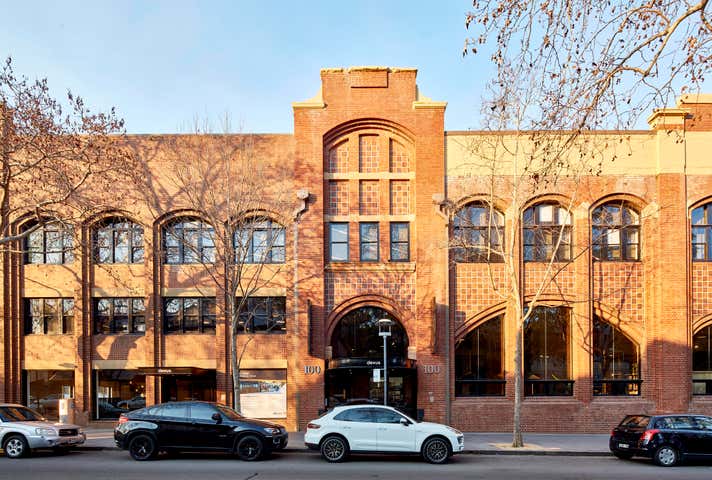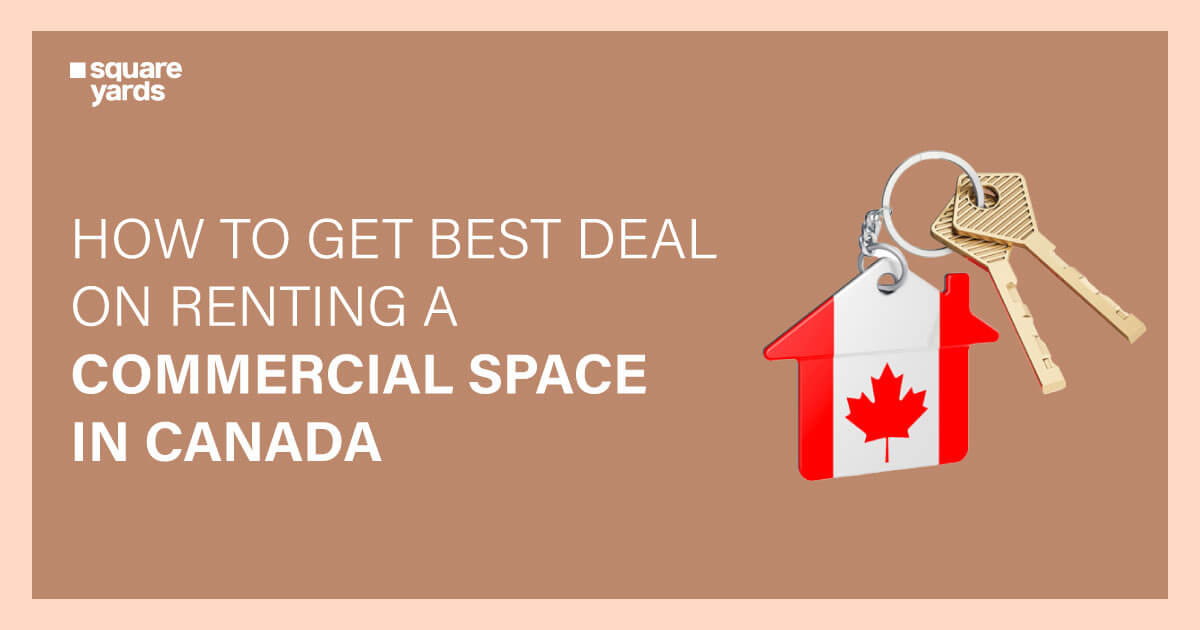Every business, whether small or large, requires commercial space to expand or launch. Canada’s commercial space needs are growing as more and more businesses are opening up, facilitating the country’s economic development. Instead of investing large sums of money all at once to purchase a space, businesses prefer to lease one. Therefore, renting a commercial space in Canada becomes a task for them.
Sometimes the condition of the property might not be favourable and sometimes the leasing cost. But the hardships do not end here – lots of research, meeting with people, and negotiation skills to get the right property for the business.
Let’s take you through the basics of the commercial real estate market, the steps to renting a commercial property in Canada, and why you require a leasing team’s help.
What is Commercial Real Estate?

Commercial real estate, also known as CRE, is a term given to properties that are used for commercial purposes. In other words, these properties are used for business-related services or to provide working space to businesses in need of being used as a space for living. Most commercial real estate properties are used as business space for rent and promote revenue generation for the owner. This category of the real estate market includes everything related to commercial use. Be it a shop, industry, or factory, it includes it all. The forms of renting commercial space in Canada are wide. In addition to revenue generation through these properties, they also add an investment advantage for the buyers too.
Types of Commercial Real Estate

Real estate can be divided into hundreds of categories. Commercial real estate can be categorised into more than 20 classes. The categorisation is done depending upon the needs, requirements, and other factors of the business. Commercial properties are divided into four major categories. These are :
-
- Office Space
- Industrial Purposes
- Multifamily Renting
- Retail
After the major categories, these four are further divided into others. Retail is further divided into strip malls, hotels and resorts, restaurants, healthcare facilities, and more. Office space is then further divided into classes A, B, and C. Each class of office space classification has some distinct features, as mentioned below:
-
- Class A : This class has the best office spaces with respect to their design, material quality, construction, age, and location.
- Class B : This section has infrastructure that is not as competitive as the first one’s features and is a little older, which is often rented or targeted for restoration purposes.
- Class C : This classification of office space includes the oldest buildings (ageing 20 years or more). They are also constructed in dense locations and require high maintenance.
Apart from these classifications, the licensing and zoning industries of each area divide them into further categories depending on the commercial use of that particular property.
Leases for Commercial Space in Canada

There are very few commercial spaces that are owned by the business operator. Most of these spaces in Canada are rented out. Here comes the lease in the framework of renting a commercial property in Canada. Most business space for rent in the country is owned by a particular investor or a group of investors that together collect the rent from each business being operated in the building.
The cost of leasing the space for a certain period of time is mentioned in the commercial lease as an annual rental in Canadian dollars per square foot of the space.
The investor and the tenant can decide on the period for leasing the space. Accordingly, the commercial lease can range from one year to 10 years or even more for office space and five years to 10 years for retail spaces in Canada. Commercial leases are usually longer than residential leases, which are typically shorter.
Pros and Cons of Renting a Commercial Space in Canada

Like buying, renting a commercial space in Canada also has some pros and cons, as mentioned below.
-
Pros
-
- It provides flexibility to relocate, change or modify the workspace in the future.
- Less requirement for less cash for leasing helps in saving funds for maintaining the cash flow.
- The small companies lacking financing sources can use the lease amount for the same.
- Tax benefits are applicable on the leased property as compared to the owned one.
- They can focus on their core work rather than worrying about maintaining the property.
-
Cons
-
- Leasing can eat up a high amount if done for a long period of time.
- Property appreciation benefits are lost if the property is not owned by the business.
- The tenant is required to pay a penalty in case of default.
- The business has no control over the property and can not use it the way they want.
- Many owners say that improvements to the property will be theirs, leading to lost salvage value.
Steps for Renting a Commercial Property in Canada

When it comes to leasing, it is not an easy task, though it might seem so on the outside. There are always some pros and cons that every tenant has to deal with during the whole search and even after leasing. But following the right method to do the work can help make the process less hectic and the work go as planned. There are a few steps that one needs to follow when renting a commercial property in Canada. The steps to getting the right commercial space/property are mentioned in detail below.
-
Step 1: Review The Business
The foremost step is to take into consideration the business valuation. Check the business stock to consider the space that the business needs. Plan it for a few years as it can help in lessening the burden. If it is a small business, it may expand in the future and want to rent a commercial space in Canada for a short period of time. Also, one can look for spaces that have expanded opportunities for a business.
Moreover, analysing the business can help in reducing the need per square foot by ameliorating its planning. Budgeting is another task that analysis can help with finding the right time to move into the business space for rent. Reviewing the business can help in more ways than one can imagine. In a nutshell, it is the basic building block for renting a commercial space in Canada.
-
Step 2 : Get Some Advice
A little advice can never go wrong. Hearing others can help in coming up with something easy and new. Be it finance or searching, the right person with knowledge in that area can make the work easy. Get into a discussion with CRE experts or your own team. Also, discussing with banking associates can help in planning the finances for renting a commercial property in Canada wisely.
On top of that, if you know a business owner who has leased commercial space, talking about their experience will be an added advantage. After accumulating all the information, find a way out for your own business that can work in both the short and long term.
-
Step 3 : Explore Available Options
Being flexible is the key to getting the right commercial property in Canada. When you start your search for a commercial space in Canada, make sure to look over all the possible options available to you. Experience is not required to find, but analysis abilities are. Taking the help of a real estate dealer can help to understand the market and needs in detail. They can also help in finding the property within budget with the facilities required in it.
Let’s take an example. You need to find business space for rent within close proximity to the city. A commercial real estate dealer can help in finding the right one with their expertise and connections that you might not have.
-
Step 4 : Lease Negotiation for Business Benefits

Have you ever wondered why negotiation is one of the most important skills? Nah, because it doesn’t matter if you know negotiation or not, there is no benefit that you can think of. But that’s a misconception. Negotiation is a crucial skill that can save you tons and help your business’s growth get on the right track.
-
Step 5 : Receive Financing
After finding the right commercial property to lease, go to a financial advisor. Ask them all the details and understand the financial options you have for renting a commercial property in Canada. Do not ever use the working capital funds for leasing the property and moving, as it can be a big mistake.
Leasing and moving drain the funds, and therefore, it is crucial to understand the financial options to plan the expenses in a strategic manner. The possible financial options that can help you defray both rental and moving costs are as follows:
1. Leasehold Improvement Loan

It is a short-term loan financing choice usually amortised between five and six years. It can help the business to cover the renovation costs mainly. Additionally, with a leasehold improvement loan, you can also ask for six months to a 12-month holiday period. This period can help in absorbing transitional costs.
After the improvements are analysed, the bank will accept the improvements in the form of collateral to provide the loan at a lower rate as it is an unsecured loan. Moreover, many banks in Canada do not hold any tangible value for leasehold improvement loans. All the business needs to show is that they have been earning profits with promising growth and cash flow in future.
2. Line of Credit
It is a flexible loan for a short period of time that you can opt to cover the lease and moving costs when you have a shortage of cash flow.
3. Working Capital Loan
It is yet another short-term loan with an amortisation period of the same as a leasehold improvement loan of five to six years. Consequently, it is an unsecured loan; therefore, the requirements for it are the same as for a leasehold improvement loan.
-
Step 6 : Transition Planning
It is crucial to plan your move beforehand. Go for a talk with your team and analyse the timetable. This will help in planning transition time along with extra time on hand for leasehold improvements, inspection, dealing, and more. Shifting to a new place takes longer than expected. But with planning and the help of a team or by hiring a contractor, the work becomes easier.
Common Lease Terms to Understand

When it comes to leasing, there are many terms that you might not be familiar with. Therefore, below are some common terms used for lease purposes in Canada.
-
- Modified Gross Lease – This term is used for lease situations in which both the tenant and the landlord share the value in case of incidents to the property.
-
- Gross Rent Lease – This term refers to the single amount that the tenant pays to the land for covering the rent and incidental expenses.
-
- Net Lease – Term used for the amount paid to the landlord directly for covering a single incident to the property. In a net lease, the tenant pays the base rent amount + property taxes. All other expenses are reimbursed by the landlord.
-
- Double Net Lease (NN) – The term for paying the base rent along with the amount for covering two incidents to the property and all other expenses are the duty of the landlord.
-
- Triple Net Lease (NNN) – The term is used for the payment that the tenant makes to cover every incidental cost like insurance, utilities, property taxes along with base rent. The landlord is then only liable to cover the structural expenses, if any.
How Can a Commercial Property Leasing Team Help?
Hiring a commercial property dealer or agent can help you with large chunks of land. It is because these experts know the ins and outs of commercial real estate. They know the whole process and how the industry works. In accordance with it, they can help you to get through all the odds of business space for rent hurdles and bring the best possible one to your plate. Additionally, they also help you to understand the market and not get lost in identifying the right property.
Negotiation Tips for Renting Commercial Space in Canada

Negotiation is a crucial part of renting a commercial property in Canada. The business owner should always go for negotiation of prices and other terms of the property when leasing it out. Some tips for negotiating a favourable commercial lease are as follows:
-
- Hire a lawyer or an expert to negotiate with the landlord if you cannot do it yourself.
- Try to negotiate with multiple commercial property owners at a time to get the best leasing deal offered.
- Settle your budget, and related expenses, and move time ahead of getting in talk for the commercial property.
- Negotiate on the base rent and do not pay the amount asked, as the landlords tend to ask for more amount as base rent thinking the tenant will agree to it.
- Negotiate for a longer commercial lease period to negotiate for the base rent and try to bring it down as much as possible.
- Look for landlords offering free rent, i.e., some landlords may agree to offer you a free rent period of 15 rent, or a month when the lease term is long.
- Get a co-tenancy clause mentioned in the lease agreement that lets you break the lease whenever needed by talking it out with the landlord.
You May Also Read
| Commercial Real Estate Loan | Buying Rental Property in Canada |
| Rental Property Management Companies | Buying a House in Canada for Non-Residents |
| Rental Property Investment | Quebec real Estate Market |
Frequently Asked Question (FAQs)
In Canada, business space for rent works on a fully net basis in which the tenant is required to pay the basic full rent amount along with a proportionate real estate tax share of the property, utility, maintenance, and insurance charges of the leased commercial property.
In Canada, if you are a tenant, you need to find a new one before leaving and hand over the commercial property lease to them.
The tenant of the property is liable for the amount required for renting a commercial property in Canada agreement.
A commercial lease in Canada can take a few days or months to complete. The time solely depends upon the tenant and the property owner after they have made a decision to settle the lease agreement.
If till the last date of the agreement, both tenant and landlord do not decide, then it is presumed that they do not wish to continue and renew the agreement. As a result, the tenant gets a notice period of 30 days to three months for them to find a new palace to lease or buy.
Canada has a sizable real estate market. Office property sales totalled CAD 1.9 billion (USD 1.5 billion) in the first half of 2021, down 37% from the same period in 2020, when they reached CAD 3 billion (USD 2.36 billion). How does renting a commercial property in Canada work?
How does one set up commercial property leasing in Canada?
Who is responsible for paying the amount for renting a commercial space agreement in Canada?
How much time do commercial leases take up to be completed?
What are the possibilities after the business space for rent lease runs out?
How big is Canadian Commercial property market?



































